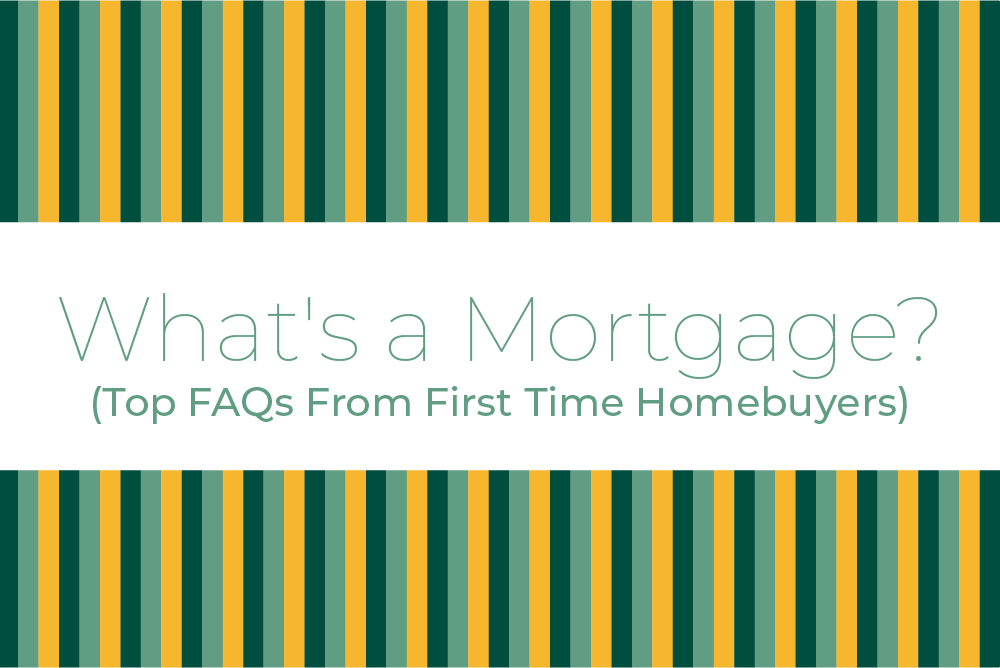What’s a Mortgage? (Top FAQs From First Time Homebuyers)

First Time Homebuyer Questions
Buying a home is an exciting prospect for new homeowners. After all, a new home is your ticket to freedom and independence. However, new homeowners often have questions as they are preparing to purchase a home. One question that many people have is how they should finance their home. Taking out a mortgage Las Vegas is one of the most common options. However, there’s quite a bit that you will need to learn first about a mortgage in order to make the best choice. Working with an experienced mortgage lender will provide you with the details and information that you need to be an informed home buyer when you purchase your home.
What is a Mortgage?
A mortgage is a loan from a mortgage company Las Vegas. Mortgages vary in duration and terms. Most mortgages last for either 15 years or 30 years. However, you may find a mortgage with a shorter duration as well. Many homeowners select 30-year loan terms if they’re buying a first home, as 30-year mortgage loans generally have the lowest monthly payments.

What are Other Mortgage Terms?
Understanding a mortgage ultimately necessitates knowing a few fundamental mortgage terms, including:
- Amortization
- Annual percentage rate
- Closing fees
- Equity
- Earnest money
- Escrow
- Loan estimate
- Mortgage insurance
- Preapproval
- Principal
- Rate
- Underwriting
Amortization is the term that describes your mortgage payments each month. When you make each monthly mortgage payment, some of the money pays off the interest, while some of your payment reduces the loan balance. Most of the earlier payments on your mortgage cover your interest rates.
Annual Percentage Rate (APR) is one of two sets of numbers that you’ll see when you make a loan payment. APR includes interest, one-time fees, and other costs associated with your loan. APR is also valuable in comparing lenders, as each lender has a different interest rate and overall loan cost.
Closing fees, or settlement costs, are required to close a deal on a home. Closing costs may include several different items, including escrow fees, real estate commissions, transfer taxes, recording fees, and lender charges. Closing costs might also include an origination fee, which is the fee a lender charges to process your application.
Earnest money is the amount you pay to show that you are serious about purchasing a home. You will put your earnest money into an escrow account until you finalize financing for your home. Most homeowners put 3% to 5% of the home’s price aside as earnest money. One caveat to note is that if the sale does not go through on the home, the seller usually gets to keep the money saved as earnest funds.
The term “escrow” refers to a neutral third party in a real estate transaction. The escrow is in charge of handling finances for the buyer and seller. An earnest money payment, for instance, gets put into escrow until you purchase your home.
A loan estimate is provided by the lender. It describes the lender’s duty for providing consumers with an easy way to understand the full cost of their mortgage. In turn, that helps consumers shop around for the best loan to meet their needs.
Mortgage insurance protects the lender in case a borrower defaults on the loan. Mortgage insurance is often required if borrowers pay less than 20% for their initial loan payments. Mortgage insurance is more common with certain types of loans, such as government-backed loans.
Pre-approval, or pre-qualification, refers to the information that you have provided to a lender. Lenders use the basic information that you provide to decide on the mortgage that you may qualify for. Different information might be required by lenders based on the loan you are applying for. They might check your credit score, income, job history, and more.
Principal is the amount of money that you borrow for a loan. Whenever you make a payment on your loan each month, part of the payment is applied towards paying off the principal. Equity in your home grows as you continue to pay off the principal. While you need to make minimum principal payments each month, you can also make higher payments to reduce your interest payments.
Rate is the amount of money that you pay when borrowing funds to pay off your loan. The rate, or “interest rate,” may either be fixed or subject to change depending on the conditions of your particular loan. If you have an adjustable-rate loan, Las Vegas mortgage rates can change daily.
Underwriting is a comprehensive review of your loan application. It helps a lender determine whether or not to approve your application. Underwriting is usually part of a lender’s origination fee. Lenders consider several different factors for underwriting, including your income, credit history, assets, and liabilities. A lender will either approve or deny your loan based on the underwriting findings. If a lender denies your application, you have a right to ask why. The lender must provide a written explanation of the loan’s denial within 60 days of receiving your request. (Are home improvements tax deductible? Read about it here.)
What are Different Types of Home Loans?
A Las Vegas loan can come in a few different varieties. Two of the most common are:
- Fixed-rate mortgage
- Adjustable-rate mortgage
A fixed-rate mortgage has a locked interest rate that does not vary. Most mortgages are fixed-rate, especially for newer homeowners.
Another option is an adjustable-rate mortgage. Adjustable-rate mortgages have variable mortgage rates Las Vegas. If you get an adjustable-rate mortgage, you might make predictable interest payments for a certain period of time, but your interest rate will be subject to change after that. The interest rate may be lower or higher than the initial interest payment depending on market conditions.
Mortgages are available through several different programs, including: 
- Conventional
- FHA loans
- VA loans
- USDA loans
- Jumbo loans
Conventional loans conform to maximum loan amounts established by the Federal Housing Finance Administration (FHFA). They require a minimum credit score of 620, and you must make a down payment of no less than 3%.
Federal Housing Administration (FHA) loans are available to borrowers with a credit score of 580. FHA loans Las Vegas require a down payment of 3.5%.
Veterans Affairs (VA) loans are offered through the Department of Veterans Affairs. You don’t need to make a down payment with a VA loan. VA loans are only available to qualified military personnel and U.S. Veterans.
U.S. Department of Agriculture (UDSA) loans do not require a down payment. USDA loans are reserved for individuals with qualifying lower income levels who purchase property in a rural or suburban area that qualifies through the program.
Jumbo loans are large mortgages that exceed loan limits established by the FHFA. The limits for a jumbo loan vary based on where you live and surrounding home prices.
See our blog, What is the Difference Between a 15- and 30-Year Mortgage to learn more.
First Time Homebuyers – What Should I Know Before Buying a Home?
When you are buying a home, you’ll want to carefully prepare your budget to prepare for the cost of owning a home. You will also want to learn when and how to make an offer on your home, closing the deal, and getting pre-approved for a loan. If you have questions about home loans Las Vegas, contact a knowledgeable loan officer Las Vegas today.
The Importance of Credit Scores in Mortgage Approval
The Importance of Credit Scores in Mortgage Approval When it comes to buying a home, one of the most critical factors lenders consider is your credit score. This three-digit number can significantly impact your ability [...]
The Role of a Renovation Consultant in the Home Loan Process
The Role of a Renovation Consultant in the Home Loan Process You may have found your dream home, but there’s just something that you’d like to change upon moving in, like the exterior paint color [...]
First-Time Homebuyer Programs Available in Las Vegas
First-Time Homebuyer Programs Available in Las Vegas Buying your first home can be simultaneously nerve-wracking and exciting! After all, you’re about to move into the home that you’ve dreamed of owning for years. When you [...]














